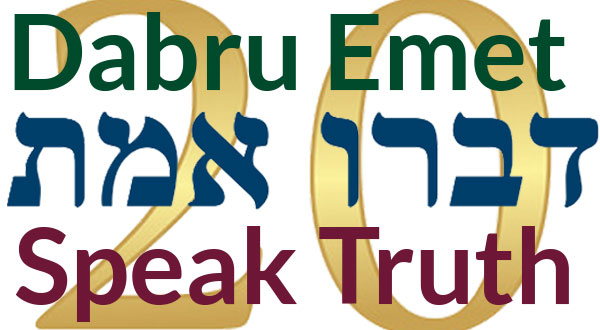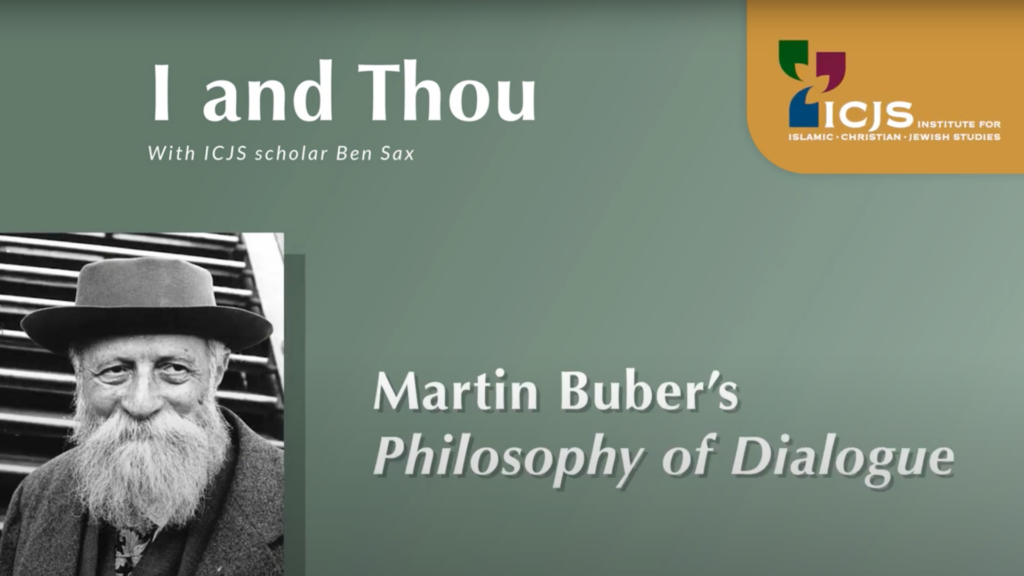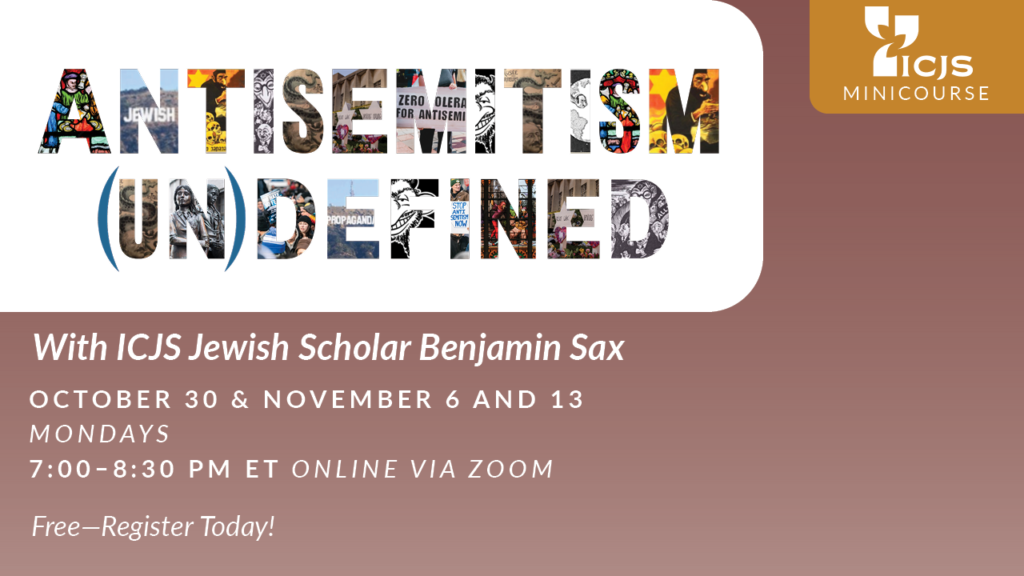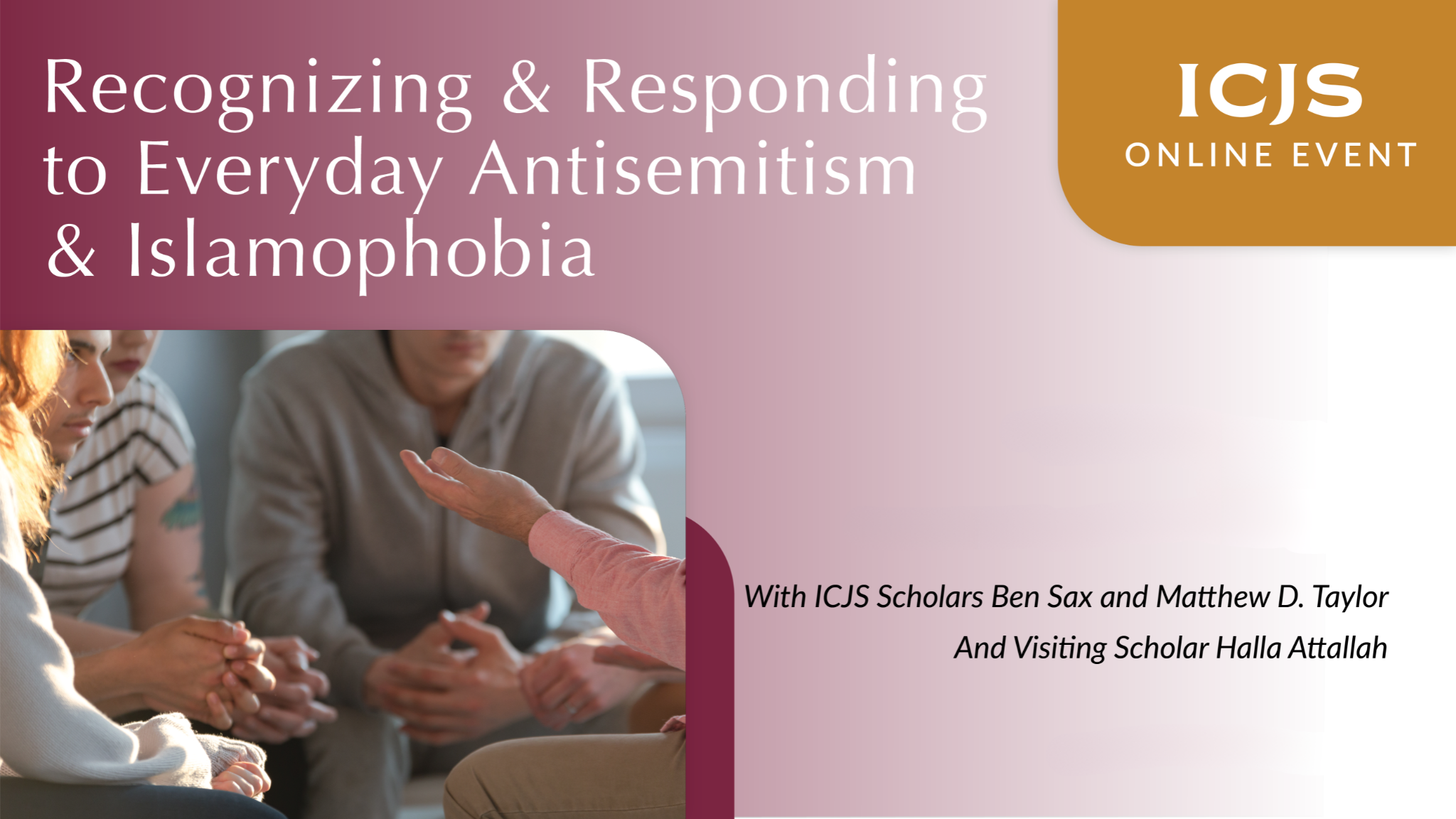Judaism and Antisemitism
Dabru Emet
 In 2000, Dabru Emet “Speak Truth”: A Jewish Statement on Christians and Christianity was published nationally by Jewish scholars, who produced the statement after studying for years in convenings hosted by ICJS (then known as the Institute of Christian & Jewish Studies).
In 2000, Dabru Emet “Speak Truth”: A Jewish Statement on Christians and Christianity was published nationally by Jewish scholars, who produced the statement after studying for years in convenings hosted by ICJS (then known as the Institute of Christian & Jewish Studies).
I and Thou
 Martin Buber’s “I and Thou” is the classic text articulating a philosophy of dialogue. ICJS Jewish Scholar Ben Sax shares his insights into this concept that is both seemingly simple, and at the same time, deeply profound.
Martin Buber’s “I and Thou” is the classic text articulating a philosophy of dialogue. ICJS Jewish Scholar Ben Sax shares his insights into this concept that is both seemingly simple, and at the same time, deeply profound.
Minicourses On Demand
Antisemitism (Un)defined
 Today, antisemitism is still a social and political problem. However, many disagree as to what it actually is. This course explores the various efforts in history to define antisemitism and the political factors that inform them.
Today, antisemitism is still a social and political problem. However, many disagree as to what it actually is. This course explores the various efforts in history to define antisemitism and the political factors that inform them.
Martin Buber and the Life of Dialogue
 Martin Buber is one the most influential thinkers of the 20th century. This course explored his notion of dialogue as expressed in his corpus of writing, ranging from comparative mysticism to biblical commentary, existentialism to poetry, philosophy to cultural Zionism, and psychology to diplomacy.
Martin Buber is one the most influential thinkers of the 20th century. This course explored his notion of dialogue as expressed in his corpus of writing, ranging from comparative mysticism to biblical commentary, existentialism to poetry, philosophy to cultural Zionism, and psychology to diplomacy.
Events On Demand
Everyday Antisemitism & Islamophobia
 What do Antisemitism and Islamophobia look like in everyday life? Can we recognize them? How do we respond when we see them? ICJS scholars examine instances of religious bias and bigotry in our everyday lives.
What do Antisemitism and Islamophobia look like in everyday life? Can we recognize them? How do we respond when we see them? ICJS scholars examine instances of religious bias and bigotry in our everyday lives.
Race, Trauma, and Healing
 Tracie Guy-Decker, senior partner of Joyous Justice, and Dr. Harriette Wimms, founder and executive director of Jews of Color Mishpacha Project, discussed their social justice work within the Jewish community and the ways in which they have addressed intergenerational trauma due to racism.
Tracie Guy-Decker, senior partner of Joyous Justice, and Dr. Harriette Wimms, founder and executive director of Jews of Color Mishpacha Project, discussed their social justice work within the Jewish community and the ways in which they have addressed intergenerational trauma due to racism.